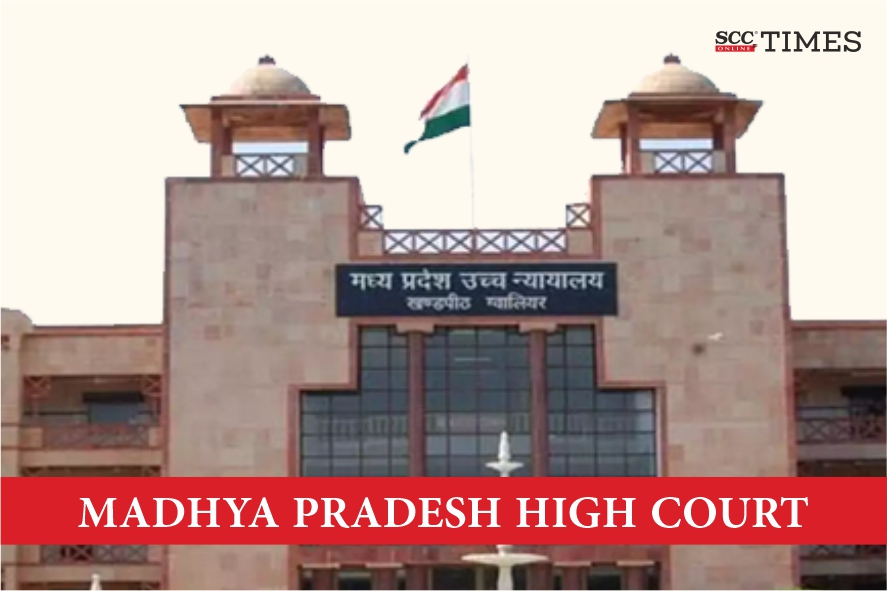Madhya Pradesh High Court: In an application under Section 482 of the Criminal Procedure Code, 1973 (‘CrPC’) to quash a FIR under Sections 377, 498-A, 294, 506 of the Penal Code, 1860 (‘IPC’) and the consequential proceedings on the ground that the allegations made were false and have been levelled against the petitioner 1-husband and his family members (‘petitioners’) only to give a criminal angle to a matrimonial dispute, Prem Narayan Singh, J., contemplated whether the consent of wife residing along with her husband during the subsistence of marriage can claim that the sexual act was committed with her without consent, and held that consent of wife is immaterial in a sexual act with her husband during the subsistence of marriage.
Background:
The complainant-wife filed an FIR, under Sections 377, 498-A, 294, 506 of the IPC, against her husband for allegedly committing unnatural sex with her due to which she got mouth infection. The wife also alleges that she was compelled to undergo abortion by the petitioners and they also demanded Rs. 20 lakhs as dowry.
The petitioners argued that the allegations were prima facie false and have been levelled only to give a criminal angle to the matrimonial dispute. The husband contended that unnatural sex under Section 377 of the IPC between a husband and a wife is not an offence.
Petitioners further argued that no medical report was furnished to substantiate the claim that wife got mouth infection and was under treatment. In relation to abortion claim, the consent letter, undertaking signed by the wife herself along with Whatsapp chats clearly depicts that the abortion was a mutual decision and not coerced by the husband or his family members. Petitioners further alleged that it was the complainant who was an abusive wife and had harassed the husband by filing fake cases.
Decision and Analysis:
The Court while relying upon the judgment in Manish Sahu v. State of M.P., 2024 SCC OnLine MP 2603, observed that “ the consent of both the parties is necessary for taking the act out of the purview of Section 377 of IPC. However, the Court after considering the amended definition of “rape” as defined under Section 375 of IPC has already come to a conclusion that if a wife is residing with her husband during the subsistence of a valid marriage, then any sexual intercourse or sexual act by a man with his own wife not below the age of fifteen years will not be rape.”
The Court then scrutinised the definition of ‘rape’ under Section 375 of the IPC and then observed the commonality between Sections 375 and 377 of the IPC, that is, the relationship between whom the offence is committed i.e. the husband and wife and consent between the offender and victim.
As per the amended definition of ‘rape’ by Criminal Law (Amendment) Act, 2013 it consists of a man who uses his penis, any other body part or any object penetrates the vagina, urethra, anus, mouth or any other body parts of a woman. The Court while considering Umang Singhar v. State of M.P. 2023 SCC OnLine MP 3221 also observed that, the consent under the exception (2) of Section 375 of the IPC is immaterial between sexual intercourse of husband and wife. Hence, the offence under Section 377 of the IPC was quashed by the court.
With regard to Section 294 of the IPC, which relates to obscene acts, the Court observed that there was no evidence available on record by which it could be ascertained that husband has committed any obscene act in public place, and the act were committed in the house which was surrounded by four walls. Hence, the offence under Section 294 of the IPC was also quashed.
Likewise, the allegations of criminal intimidation under Section 506 of the IPC, were not supported by evidence, as for that offence to be made out there should be an omnibus statement threatening to kill, including the ingredients of fear and frightening, which the complainant failed to establish. The Court observed, that the wife never stated that she was frightened because of the threat. Hence, the offence under Section 506 of the IPC was also quashed.
Petitioners were also implicated under Section 498-A IPC, which relates to cruelty by husband or relative of husband, where they allegedly demanded dowry and subjected the complainant to cruelty for non–fulfilment of their demands. These allegations were made along with statements from witnesses recorded under Section 164 and 161 of the CrPC. The court observed that there was a case to be made out of Section 498-A of the IPC and the petition with regard to the same was dismissed.
Thus, the Court partly allowed the present application to the to the extent that the offence under Sections 377, 294, 506 of the IPC against the petitioners were quashed, and offence under Section 498-A of the IPC in the FIR was not quashed.
Case Details-
[Shashank Harsh v. State of MP, 2024 SCC OnLine MP 3750, Order dated 28-05-2024]
Advocates who appeared in this case :
Counsel for Petitioners: Sitwat Nabi and Shri Vyas, Advocates
Counsel for Respondents: G.A, Subodh Choudhary, Advocates.








